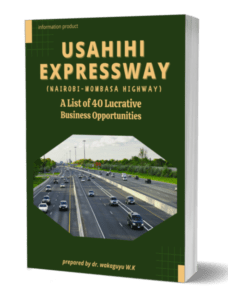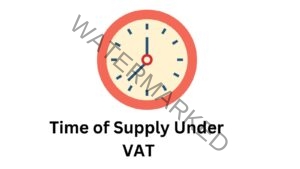Affiliate Disclosure: This post may contain affiliate links – I may receive a small commission if you purchase through links, at no extra cost to you. Read HERE.
Land Valuation in Joint Ventures
There are many reasons why people get into JVs with developers. But, many people who get into JVs with developers want either of the following:
- Cash for the land
- Houses for the land.
- A mix of money and houses
Imagine trading your Pokemon cards, but instead of cards, it is land for houses. Just like in a fair trade, it is important to know the true value of what you are exchanging. So, why is proper land valuation a big deal for taxation? Let us find out!
What is Land Valuation?
Land valuation is like getting your land appraised. It is finding out how much your piece of earth is worth. Imagine having an expert tell you that your old football card is worth a fortune! But you want the true land valuation so that you can know the worth.
Whatever developments will take place on the land, there will be costs. Land is a major cost. It is therefore important to have the land valued properly.
When to Value the Land for JV
Development projects take time. It is important to consider that development projects can take years. Meanwhile, the land will be appreciated. It is, therefore, important to have the proper land valuation. You can value the land:
- Before the start of the commencement of discussions with the developer.
- At the signing of the JV.
- When forming the company for the JV.
Each stage has its pros and cons. After evaluating the land, in some cases, you can pay stamp duty while in other cases there is no stamp duty. The land valuation is taken as the cost of the land in the JV.
Arm’s Length Value
Where there is no valuation, what is the value of the land? The arms-length value is taken as the value of the land. Arm’s length is when someone else was to buy the land. How much would the person get for the land? Or how much would an equivalent piece have cost anyone else who is not a developer?
The Arms-length price can be lower or higher. When dealing with the tax commissioner, when you do not have documentary evidence of the value of the land, you leave yourself at. The mercy of the tax commissioner. You will either smile gleefully or cry a river.
As a landowner, having proper land valuation is important. There are many advantages of valuing the land before a JV agreement. The following are six advantages.
6 Advantages of Land Valuation Before a JV Agreement
Fair Taxes
When the value of land is known, everyone pays the right amount of tax. No one pays too much or too little – just like Goldilocks’ porridge, it is just right. You will not get the tax commissioner coming after you with tax assessments that you did not anticipate.
Avoid Tax Assessment
When you have a proper valuation, you know how much your tax bill is. It’s like a well-balanced seesaw that doesn’t tip over. But if you do not have the proper valuation, you will be at the mercy of the tax commissioner. And chances are it will not be Christmas celebrations for you.
Accurate Records
Proper valuation keeps the books straight. It is like having a neat room where you can find everything easily. The valuation document is for all persons who are interested to see. Your valuer, the Ministry of Lands, yourself and possibly even your bankers know about it. The document is not a secret.
Avoids Disputes
When everyone agrees on the value, there are fewer arguments. No more “But my land is worth a bazillion dollars!” in case you are negotiating with a developer or a bank.
Encourages Investment
Investors feel confident putting money into fair-valued land where they can spread their risks. It is like knowing the candy you’re buying is worth every coin. Developers want to see valuation on paper because they are taking a risk on your land. With a valuation document, the consolation is that at least some of the risk has been taken by the land valuer.
Transparency
Land valuation establishes a known score for everyone. It is like playing a game where the rules are clear and fair for all. How much is the land? Everyone involved knows the value.
Every coin has two sides. What are the disadvantages of having a proper land valuation before a JV?
7 Disadvantages of Land Valuation Before a JV Agreement
Complex Process
Valuing land properly can be complicated. It is like solving a tough puzzle. This is because it takes time and there are many documents required and many offices to visit.
Costs Money
Valuing land can be expensive. It is like paying a detective to find out if your comic book is a first edition. You will need to hire experts to do the job. In addition, you may need to pay for the stamp duty and this can be expensive.
Time-Consuming
Land valuation takes time to get it right. It is like waiting for a slow cooker to make the perfect stew. The process starts with preparations for the documents. Many landowners are poor record keepers. After all the documents and records are gathered, then it will be the actual valuation.
Thereafter, the owner or the representatives must ensure the valuation document is proper and, in case there is a stamp duty to pay, it is paid. This process consumes time.
Market Fluctuations
Land value can change with the market. It is like riding a cranked roller coaster – up one minute, but only in rare cases does the price go down. If you are getting into a project which will take time to complete, you may lose money on the value.
Potential for Disagreement
Not everyone might agree with the value set. Sometimes, it can be like arguing whether pineapple belongs on pizza. This can happen especially when a professional valuer is not used or crooked deals are entered into.
Legal Hassles
There can be legal challenges if the valuation is contested. And this can be like getting stuck in the middle of a sibling fight over the last cookie. Sometimes it is better to wait for a developer and agree on a valuation.
Emotional Value
Owners might feel their land is worth more because of personal attachment and may want to put a premium on the land. It can be like your grandma’s quilt – priceless to you, but tricky to value in money. They may insist on a value higher than what is in the valuation document.
Conclusion
So, there you have it! Proper land valuation in a JV is crucial for fair taxation, just like knowing the real worth of your favourite toy before trading it. It has its perks, like keeping things fair and square, but also its downsides, like taking time and money.
Just remember, whether it is land, football cards, or grandma’s quilt, knowing the true value can save a lot of headaches (and heartaches) down the road. Happy valuing everyone!
Thank you for reading the post. Let us have your thoughts about proper land valuation for JV agreements.
Dr Wakaguyu






